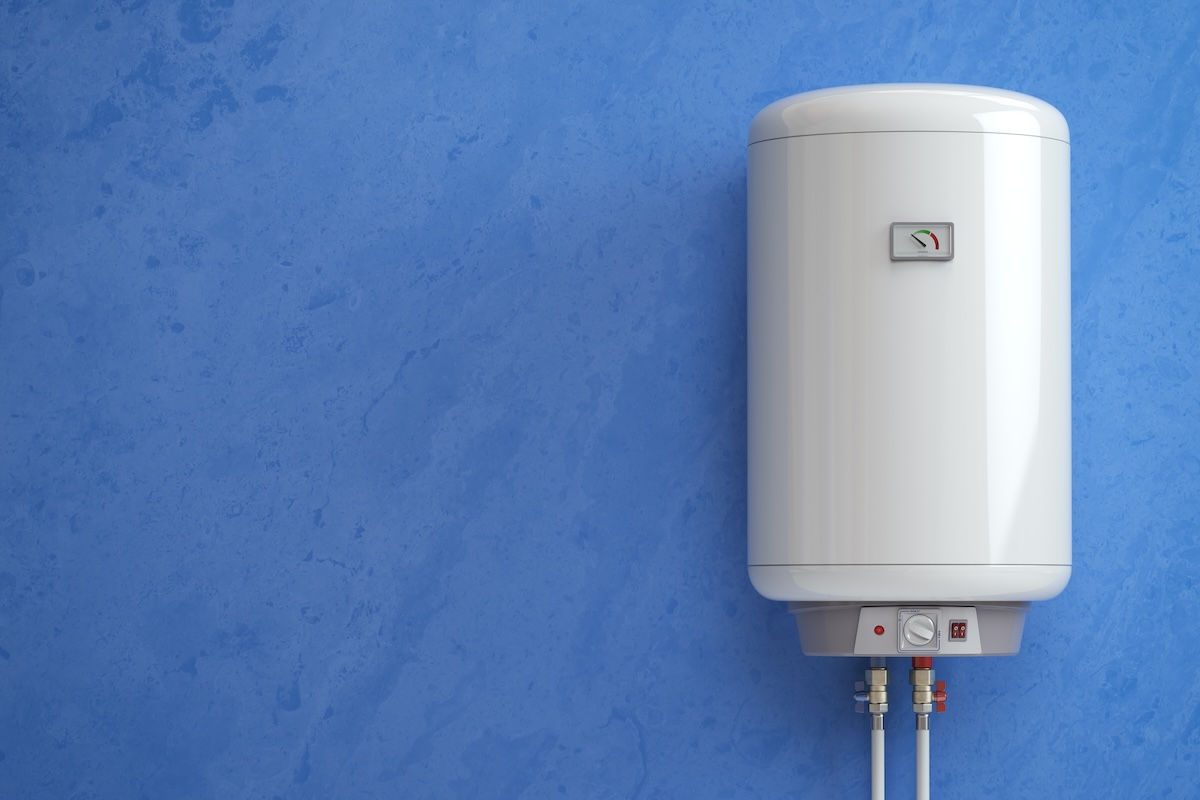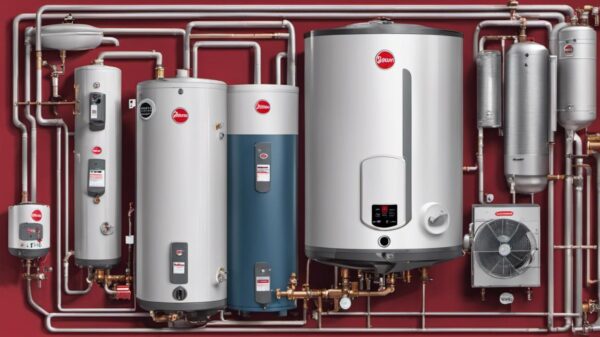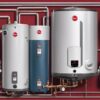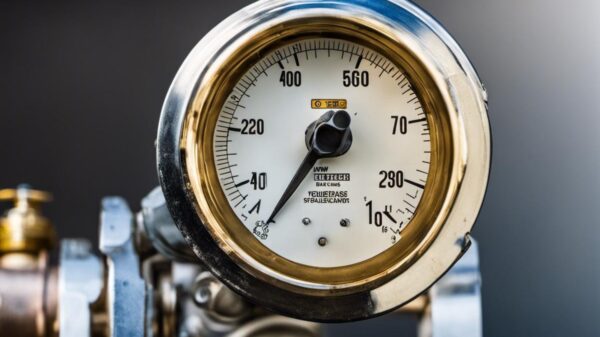Exploring Energy-Efficient Water Heaters
With the advancement of modern technologies and the increasing emphasis on environmental preservation, energy-efficient water heaters have dramatically come to the forefront. These innovative heating mechanisms form part of the shift towards smarter, greener homes, and offer remarkable benefits from economic, environmental, and efficiency perspectives. This piece delves into the mechanism of these futurist appliances, drawing attention to what makes them stand out and significantly contribute to energy conservation and sustainability. It highlights the distinctions between traditional water heaters and their contemporary, energy-efficient counterparts, illuminating their advantages and the broad spectrum of available models in the current market.
Mechanism of Energy-Efficient Water Heaters
As we stride forward into the future, technology plays an increasingly significant role in our lives. It is transforming our world at an unparalleled pace, making our lives simpler, more convenient, and importantly, more efficient. A prime example of this can be noticed in the domain of water heating, a household necessity. Technological advancements have started transforming water heaters, making them more energy efficient. But how exactly does this happen? Let’s delve deeper.
The backbone of modern, energy-efficient water heaters is the judicious amalgamation of advanced technology in their design and operation. Their features aren’t just geared towards offering hot water on demand; they aim to do so with optimized energy usage.
One of the pioneering technologies adopted by water heaters is heat pump technology. This innovative technique moves heat rather than generating it. The method requires less electricity compared to traditional electric water heaters, thus reinforcing energy efficiency.
Next up is the tankless water heating technology. The principle of operation is rather ingenious: heat the water only when it’s needed. Unlike traditional water heaters, no standby energy is lost, as the water is heated instantaneously during usage. This translates seamlessly into considerable energy savings.
Utilization of advanced materials is another game-changing aspect that propels the energy efficiency of modern water heaters. For instance, heaters equipped with self-cleaning systems perform more effectively and ensure longevity. This feature uses a patented magnesium anode rod design with a special resistor, which protects the tank from rust, thus reducing energy consumption in the long run.
Modern water heaters are opting for digital, programmable thermostats that allow precise control over water temperature. This precision leads to lower energy consumption because the water heater doesn’t have to work as hard to maintain the desired temperature.
Furthermore, many companies are integrating smart technology into their water heaters. With features such as remote control, energy consumption tracking, and leakage alerts, users can optimize their energy use. With the insightful data, they can make informed decisions about their energy habits, thus steering towards energy efficiency.
High-grade insulation is another stellar tech-advancement observed in modern water heaters. This efficient insulation minimizes heat loss, contributing greatly to energy efficiency. Several heaters now come with insulated heat traps, which innately reduce heat loss on water inlet and outlet pipes.
Another jump forward has been made with the advent of solar water heaters. By harnessing solar energy, these systems deliver hot water with practically no carbon footprint, offering a perfect balance between convenience and conservation.
In conclusion, technological advancements are revolutionizing water heaters, making this household necessity a power player in energy efficiency. As we reach new milestones in technology, it’s worth witnessing how smoothly it intertwines with our everyday appliances, creating a harmonious blend of convenience and sustainability.
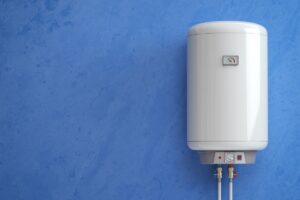
Advantages of Energy-Efficient Water Heaters
Diving into the particulars of energy-efficient water heaters against their standard counterparts, it becomes evident that these advanced devices manifest superior capabilities on three fronts: cost, operational efficiency, and environmental impact.
In the realm of cost, energy-efficient water heaters demonstrate higher upfront investments. While a visible drawback for some, it is crucial to consider the long-term perspective. The cost of owning a standard water heater eventually outpaces that of an energy-efficient model; with lower operating costs and enhanced longevity, energy-efficient models bring substantial lifetime value.
A 2018 research study by the National Resources Defense Council (NRDC) elucidates this point. While an average standard model incurs about $820 in energy costs annually, energy-efficient models can cut this figure by 50% to 60%. Over their 13-year life expectancy, these savings can accumulate to an astonishing $4,800 for heat pump heaters and $1,800 for tankless models.
Furthermore, energy-efficient water heaters epitomize peak operational efficiency. Standard water heaters typically heat and re-heat water in a tank, leading to “standby loss”–energy wasted when no hot water is used. Energy-efficient models, however, circumnavigate this issue. For instance, tankless heaters only heat water on-demand, dramatically reducing standby loss. Adeptly harnessing technology like smart sensors and superior insulating materials, these models manage energy usage meticulously – translating into substantial cost and energy savings.
The green credentials of energy-efficient water heaters are, nonetheless, their true trump card. With increasingly strident global calls for sustainable practices, these models respond aptly by significantly minimizing carbon footprints. Energy Star, a U.S. Environmental Protection Agency program, notes that if even half of American households used energy-efficient models, the reduction in carbon dioxide emissions would equate to removing 1.25 million cars from the roads each year.
Moreover, solar water heaters further whittle down environmental impact. By harnessing renewable solar energy, they not only deliver efficiencies surpassing 90%, but also significantly decrease dependence on traditional, carbon-intensive energy sources.
In sum, these novel water heaters showcase a potent blend of cost-effectiveness, heightened efficiency, and unrivaled environmental sustainability. Adapted to the era’s climate concerns and technological leaps, energy-efficient water heaters represent not merely an option, but an imperative for today’s homeowners. Through their strategic adoption, we can foster a culture that intertwines technology, economy, and ecology – infusing our homes with progress, while safeguarding our environment’s future.
Types of Energy-Efficient Water Heaters
Building on the very essential role of technology in our lives, the innovation in water heaters has greatly contributed to energy efficiency, something that not only has a positive impact on the environment but on homeowners’ wallets as well.
So, what are the latest trends in energy-efficient water heaters, and how do these products differentiate themselves with unique features?
Drilling down into energy efficiency, it becomes important to consider models like condensing water heaters. A condensing water heater works by using the hot exhaust gases, typically expelled and wasted, to heat the water. The result is a drastic reduction in energy need, considerably upping the efficiency and lowering the cost in the process. These models are particularly effective for natural gas systems, creating another alternative for homes to move away from electric heating solutions.
Hybrid water heaters, also known as heat pump heaters, represent another cutting-edge technology. Combining the functionality of a tank and a tankless heater, these devices are adept at using the ambient air temperature and radiant underground heat to warm up water. They use electricity only to move heat from the ground or air to the water, making them very energy efficient.
Moving on to the adaptation of technology, innovations like Wi-Fi enabled controls are also gaining strides. Today’s smart water heaters can be controlled via apps, allowing homeowners to adjust temperature settings, track energy usage, and even schedule heating during off-peak hours for additional savings.
Other models incorporate self-cleaning technology that fights harmful sediment buildup. This not only helps to increase the life of the heater but also optimizes its efficiency, as the heater doesn’t have to work overtime to heat water in a tank with sediment.
Energy Efficiency Level (EEL) is a new parameter introduced to rate the energy efficiency of a water heater. An EEL rating above 0.80 is increasingly being seen as a benchmark for high-efficiency units, pushing manufacturers to innovate and exceed these expectations.
Navigating towards more sustainable solutions, ultra-low NOx emissions water heaters are growing in popularity. These designs substantially reduce the amount of nitrogen oxide emissions, aiding in better air quality and contributing to sustainable living.
Conclusively, household appliances like water heaters are becoming a focal point for energy efficiency, driven by technological advancements. Despite the somewhat larger upfront cost, these energy-efficient water heaters present a lower cost of ownership over time while playing a vital role in reducing environmental impact. In this light, it’s clear to see that technology and smart solutions will continue playing a key role in the evolution of energy-efficient appliances.
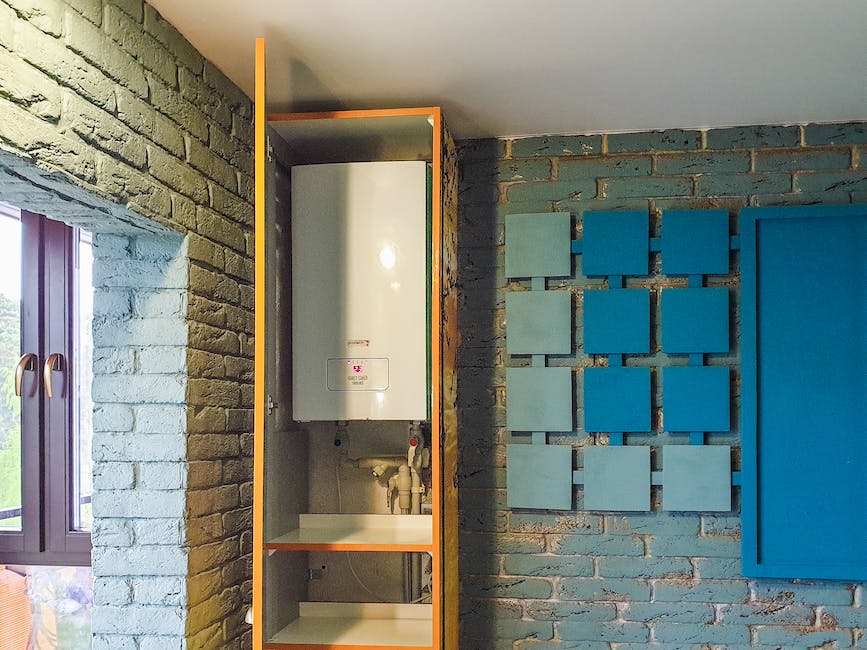
Installation and Maintenance of Energy-Efficient Water Heaters
As the segments of technologically advanced homes, the utility of water heaters hasn’t been left in the cold. Specifically, the installation and maintenance facets of energy-efficient water heaters cater well to the 21st century tech-savvy consumer who values automation and convenience.
Commencing with the installation, these pinnacles of energy-saving technology are designed with user-friendliness in mind. Whether it’s the compact, easy-to-accommodate design of tankless systems or the uniquely hook-up-ready style of heat pump heaters, these devices are cognizant of modern installation expectations. Manufacturers keenly include precise, step-by-step guides, and often, handy QR codes that link to tutorial videos, streamlining the DIY installation process for the technically inclined.
Moving onto maintenance, the innovation in energy-efficient water heaters is nothing short of a boon for the tech enthusiast. Smart sensors are leading the game, facilitating automatic detection of any anomalous behavior or underperformance issues. These sensors relay real-time diagnostics and alert users of necessary maintenance, eliminating the need for manual checks and guesswork.
Furthermore, several models incorporate self-cleaning technology, adding an extra layer of automation to your water heating systems. This innovation reduces sediment build-up, ensuring the heater functions at peak efficiency and prolonging its lifespan. For the tech-savvy, this application is akin to a patch or software upgrade, keeping the essential hardware running smoothly without the tedious, manual hassle.
Wi-Fi-enabled controls also play an integral role in the automated maintenance cycle. With a few taps on their smartphone, users can remotely control the water heaters, schedule heating cycles, and even receive maintenance reminders. This integration makes adjusting the water heater to personal preferences a breeze while also enabling prompt response to potential issues.
Locking horns with the gas-emission challenge, newly introduced ultra-low NOx emissions water heaters also evidence technological strides in sustainability. Energy Star and Energy Efficiency Level (EEL) ratings, prominently displayed on these appliances, are beacons for environmentally conscious tech lovers. Also, the lowering cost of ownership definitely doesn’t hurt, further sweetening the deal on these systems.
As regards solar water heaters, companies are indeed in tune with the challenges of installing and maintaining these high-tech devices. From clear instructions on solar collector placement to monitoring the performance of solar cells and thermal storage, it all syncs seamlessly with the tech-inclined, eco-friendly lifestyle.
All in all, if you’re a problem-solving tech enthusiast who prefers automation over manual processes, the modern, energy-efficient water heater is your home appliance counterpart. Integrated with advanced technology for streamlined installation and automated maintenance, these appliances complement the tech-savvy lifestyle while reducing carbon footprints. This innovation is indeed proof that technology and environmental efficiency make a commendable pairing.
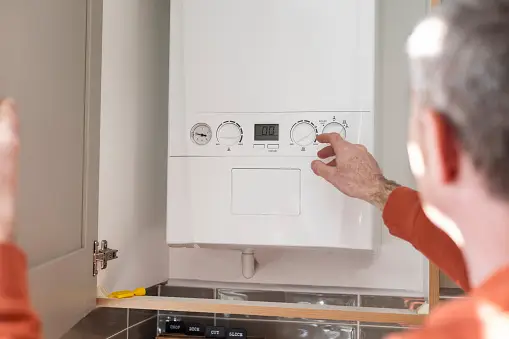
Conclusion
To reap the full benefits of energy-efficient water heaters, it is essential to comprehend not only their functioning but also the nuances of their installation and maintenance. These complex systems require proper setup and regular upkeep, powered largely by artificial intelligence and automated functionalities for seamless operation. Exploring these details is not only vital for prospective owners but also serves as a testament to the importance of embracing such advancements for our homes and our environment. As the world continues to strive for sustainability, the role of energy-efficient water heaters is destined to become increasingly paramount, affirming our shared responsibility towards resource conservation and a healthier planet.


